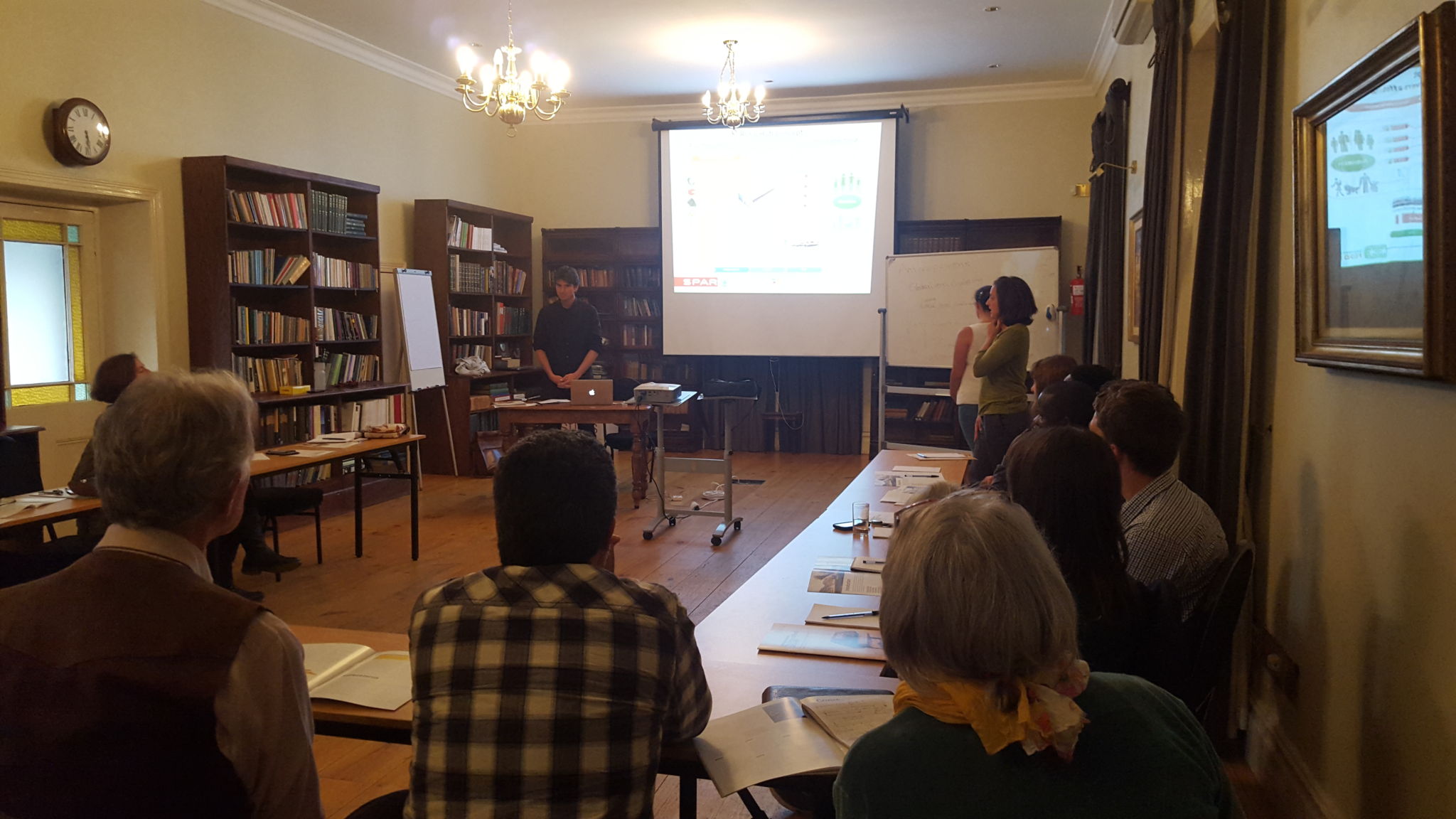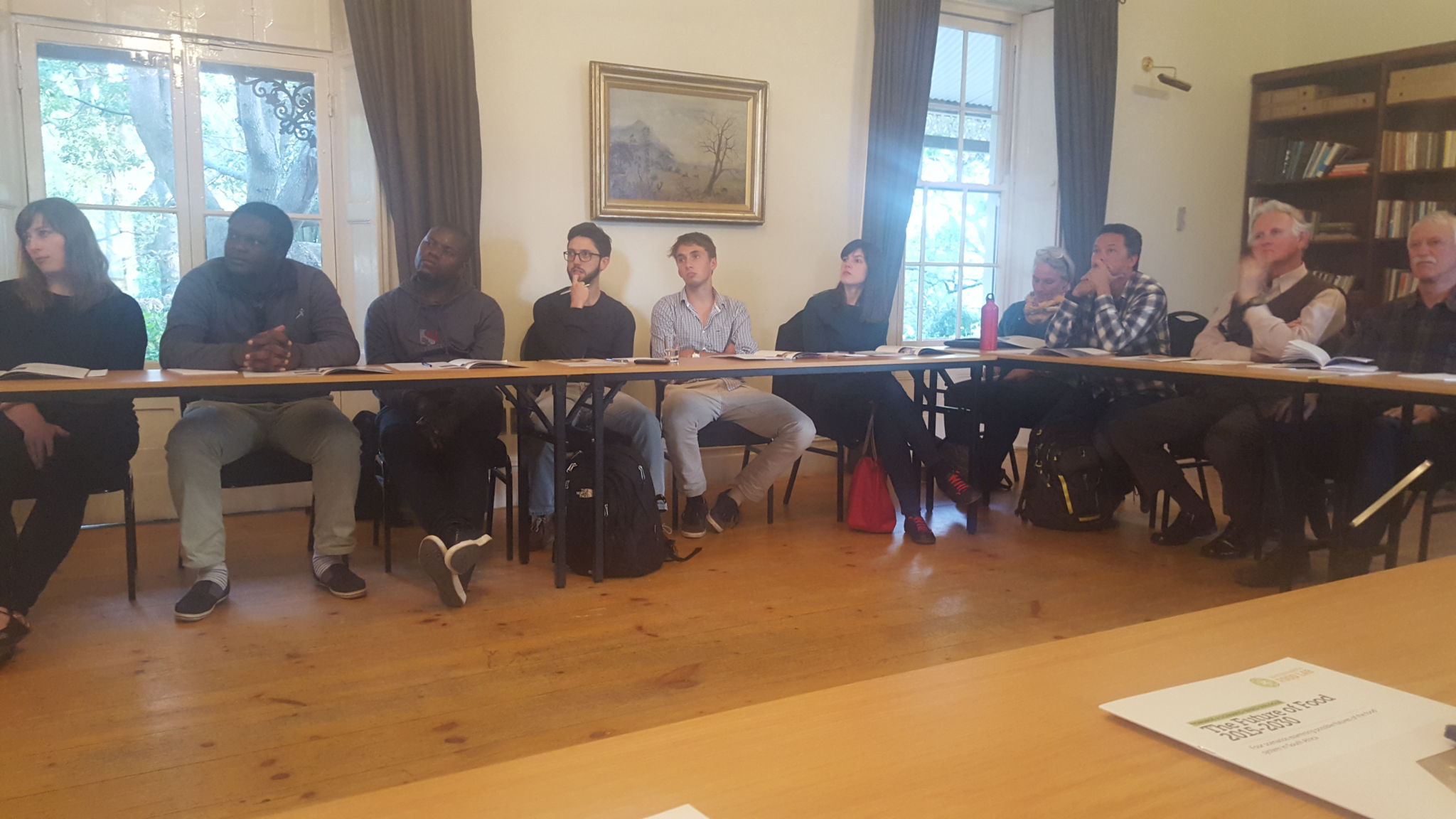‘Anthropocene Dialogues’ Series explores the Future of Food
What kinds of foods will South Africans have access to in the year 2030? What will land reform mean for the country’s commercial and small-scale famers? What will be the effects of drought, climate change and changing weather patterns on farming? How will inflation and variable currency exchange rates impact on food insecurity? What changes are needed in the political system? What will it take to ensure that all South Africans have access to safe, healthy, affordable food?
On 16 May, the Centre for Complex Systems in Transition hosted a talk with Southern African Food Lab director Dr. Scott Drimie and CST researcher Dr. Laura Pereira, exploring these key questions through a recent publication, The Future of Food 2015-2030: four scenarios examining possible futures of the food system in South Africa.

The report was the culmination of a Transformative Scenario Planning process facilitated by the Southern African Food Lab and Reos Partners, which brought together some 50 participants drawn from across the food industry, government, civil society and academia to explore the complexities of the food system from different angles. Views about the future of food – what are the challenges, and what should be done to address these challenges – are heavily contested. Perspectives on the role of state intervention in the food system, for example, are highly polarized.
As Dr. Drimie noted, the scenarios provided an opportunity for diverse actors in the food system to have more coherent conversations with one another across ideological barriers, and in the process to collectively imagine plausible, tangible ‘stories of the future’ in order to help galvanise action in the present.
Each of the four scenarios presented in the report focuses on a particular aspect of the food system:
- Scenario 1 focuses on food as a product of nature, and looks at how water scarcity and linked environmental threats of declining soil fertility, energy insecurity and climate change may impact negatively on food production;
- Scenario 2 focuses on food as a product of farming, looking at how land ownership patterns, land restitution and the widening gap between commercial and small-holder farmers may impact on the productivity and morale of farmers;
- Scenario 3 focuses on food as a product of the political economy, and looks at how rising food prices, poverty and inequality, exacerbated by factors such as a depreciating rand and unstable weather patterns, may result in widespread hunger and trigger political anger and change;
- Scenario 4 focuses on food as a source of health, wellbeing and productivity, and imagines that a poor return on investments in health, education and economic infrastructure prompts government to prioritise nutrition as the basis for a healthy economy.
Following the report’s publication in October 2015, the worst extremes of economic, environmental and political instability anticipated in these scenarios have been playing out, Dr. Drimie told the audience. Inflation, food prices and unemployment are soaring. Meanwhile, new opportunities for conflict, mobilisation and dialogue are emerging, both in government and civil society, for example as the fledgling South African Food Sovereignty Campaign mobilises politically with protests targeting the mining and retail sectors.
Given this context of radical uncertainty, complexity and volatility, Dr. Drimie said he hopes the report will be a catalyst to help broaden the food policy conversations taking place within government, industry and civil society – and also to strengthen the dialogues across these sectors.


